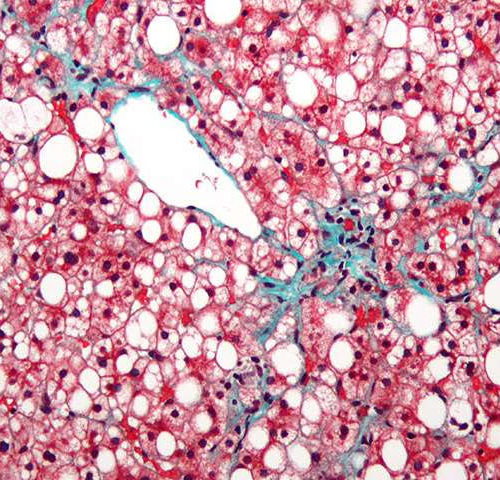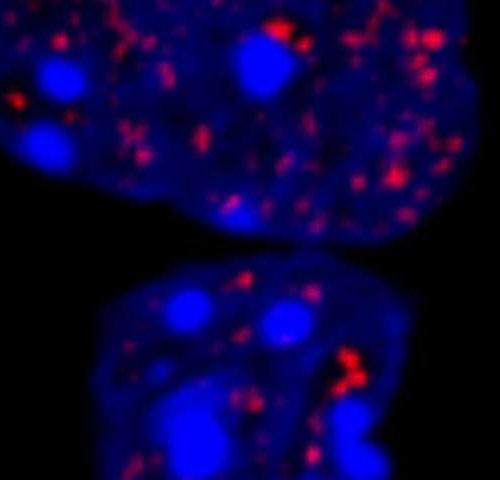A large international trial involving UCL and University College London Hospitals NHS Foundation Trust (UCLH) has found that pembrolizumab, a form of immunotherapy, more than doubled the ‘progression free survival’ time of patients with a specific subtype of advanced bowel cancer, when compared with chemotherapy. ‘Progression free survival’ is the length of time during and...
Tag: <span>hereditary colon cancer</span>
Danish researchers find new breast cancer gene in young people
by University of Copenhagen Over the past 20 years, our knowledge of hereditary diseases has taken a quantum leap, and several hereditary gene variants have been found that may predispose to the development of cancer. We have known for a long time that mutations in human BRCA1 and BRCA2 genes may lead to the development...
Researchers develop new drugs for treating polycystic hepatorena
Polycystic hepatorenal diseases are hereditary genetic disorders characterized by the progressive development of multiple symptomatic cysts in the kidneys and/or liver that may cause alterations in the function of those organs and/or complications associated with their growth. Right now, there are no effective pharmacological treatments and the only curative option is organ transplant. Researchers at...
Unexpectedly potent protein droplets help explain hereditary diseases
by Max Planck Society Microscopic image of cell nuclei of cultured cells. HOXD13 condensates are labelled in red. The DNA is stained in blue. Credit: MPI f. Molecular Genetics/ Shaon Basu Repeats of individual building blocks within proteins are the cause of many hereditary diseases, but how such repeats actually cause disease is still largely...
A new genetic marker accounts for up to 1.4 percent of cases of hereditary colon cancer
Researchers from the Hereditary Cancer group of the Oncobell Program of the Bellvitge Biomedical Research Institute (IDIBELL) — Hereditary Cancer Program of the Catalan Institute of Oncology (ICO) have found a new genetic marker that would explain up to 1.4% of those inherited colon cancer cases not related to the mutations currently associated with this...



